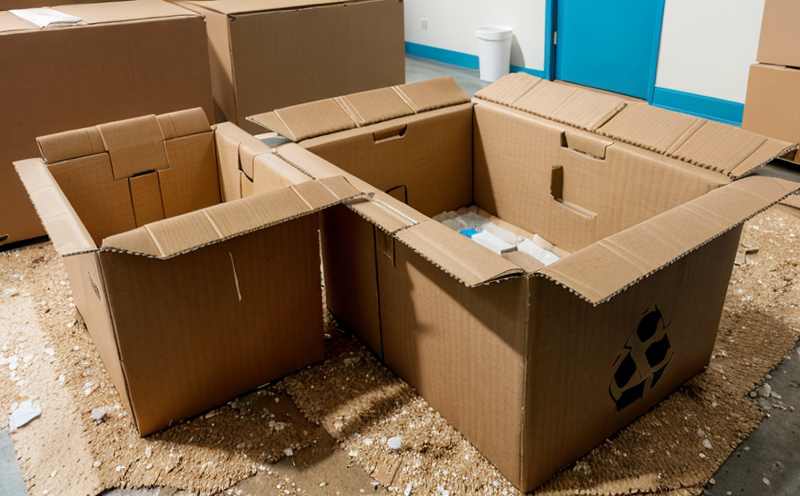ASTM D202 Moisture Content of Recycled Pulp
The ASTM D202 standard method is a critical tool in waste management and recycling testing, particularly for the paper, pulp, and cardboard sectors. This test provides essential information on the moisture content of recycled pulp, which directly impacts the quality control process during paper production. Ensuring accurate moisture levels helps manufacturers meet product specifications and regulatory requirements.
The ASTM D202 method involves drying a sample of recycled pulp in an oven under controlled conditions until it reaches a constant weight. The difference between the initial mass and the final mass is indicative of the moisture content within the material. This test procedure ensures that recycled materials are properly prepared before they enter the pulping process, thereby optimizing paper quality.
Accurate moisture measurement using ASTM D202 is vital for several reasons:
- Maintaining consistent product quality
- Enhancing recyclability and sustainability of products
- Meeting industry standards and regulatory requirements
- Facilitating efficient waste management practices
- Improving the efficiency of pulping processes
In summary, ASTM D202 serves as a cornerstone for quality assurance in recycling operations. By accurately measuring moisture content, this test supports sustainable practices while ensuring that recycled materials are fit for use.
Why It Matters
The importance of the ASTM D202 method extends far beyond mere compliance; it plays a pivotal role in enhancing product quality and sustainability. Moisture content significantly affects paper strength, printability, and durability. Excessive moisture can lead to mold growth or structural integrity issues, while insufficient moisture may compromise the pulping process.
For manufacturers, accurate moisture measurement helps them adhere to industry standards such as ISO 14025 for life cycle assessment and ASTM D883 for polymer properties. Compliance with these standards ensures that products meet customer expectations and regulatory requirements. In addition, precise moisture content allows for better recycling practices, reducing waste and promoting environmental sustainability.
Moreover, the ASTM D202 method supports the circular economy by ensuring that recycled materials are efficiently reused in paper production without compromising quality. This not only benefits manufacturers but also contributes to broader environmental goals.
Benefits
- Precision and Consistency: ASTM D202 ensures consistent results, which is crucial for maintaining high-quality recycled products.
- Environmental Impact: By accurately measuring moisture content, the method helps minimize waste and supports sustainable practices.
- Regulatory Compliance: Adherence to this standard allows businesses to meet industry standards and regulatory requirements.
- Efficiency: Properly managed recycled pulp enhances the efficiency of paper production processes.
The ASTM D202 method is indispensable for maintaining quality control in recycling operations, ensuring that recycled materials are fit for use. This precision translates to better product performance and a reduced environmental footprint.
Use Cases and Application Examples
- Paper Mills: Ensuring the moisture content of recycled pulp aligns with production standards.
- Recycling Facilities: Managing the quality of incoming materials to optimize recycling processes.
- R&D Engineers: Developing new methods for improving paper strength and durability through controlled moisture levels.
- Sustainability Officers: Implementing best practices in waste management to enhance environmental sustainability.
In practice, the ASTM D202 method is used extensively in both manufacturing and recycling sectors. For instance, a paper mill might use this test to adjust its pulping process based on the moisture content of recycled pulp. Similarly, a recycling facility can leverage it to ensure that only appropriately dried materials enter the production line.
These real-world applications highlight how ASTM D202 contributes to efficient and sustainable waste management practices. By providing accurate moisture measurements, this test ensures that recycled materials are optimized for use in paper production.





